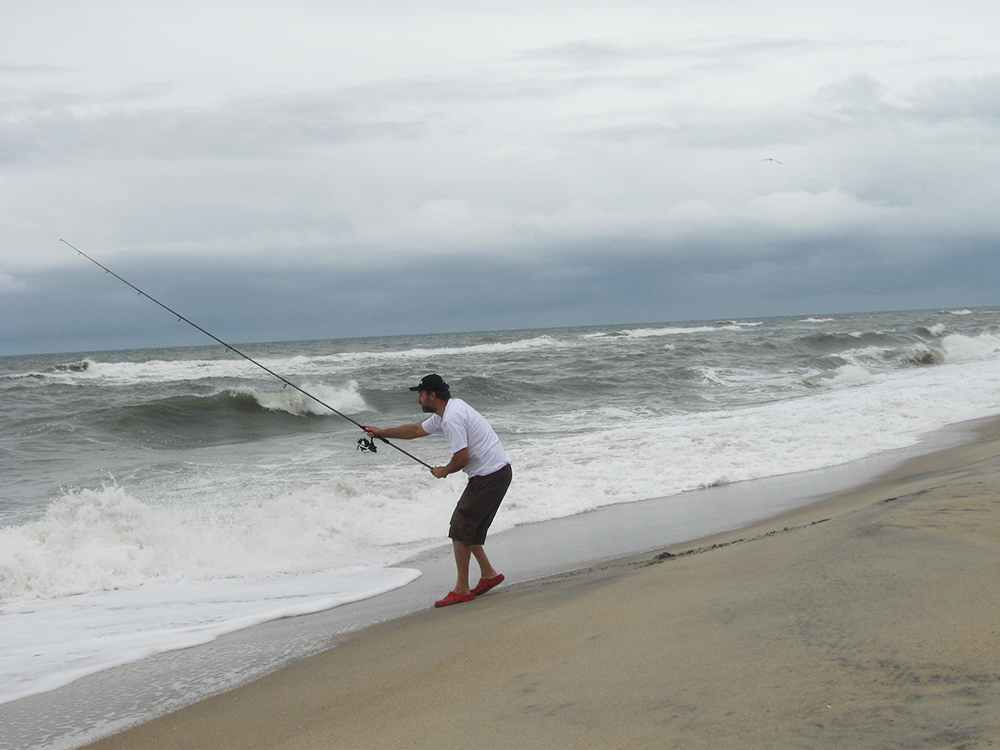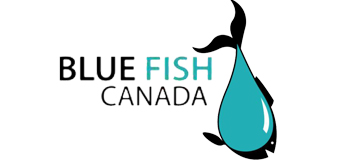Blue Fish News – June 7, 2020
In this June 7, 2020 issue of the Blue Fish Canada News we celebrate World Ocean Day (June 8) and the bounty the ocean represents.
This week’s Blue Fish Canada News includes:
- Our weekly Feature including curated Blue Fish Radio interviews with experts and analysis;
- Links to timely fishing, fish health, water quality and other news; and
- A resource that will inform and inspire you to become better at both catch-and-release fishing, and at harvesting fish sustainably.
**Don’t forget to take the Blue fish Steward 12-question Quiz and enter your name to win one of seven great prizes totaling $750 in value**

World Ocean Day June 8:
This Week’s Feature celebrates World Ocean Day on June 8, and the sustainable seafood opportunities the world’s ocean represents. Not only is Canada surrounded on three sides by three oceans, but Canada also has the longest coastline in the world. Further, taking into consideration Canada’s rights over it’s coastal waters, the total area of ocean Canada has responsibility over is 2.67 million square kilometres representing 72% of Canada’s total territory. You would think that we would be world leading stewards of our good fortune.
Bren Smith is a Canadian now living on Long Island in the state of New York where he’s pioneering a Green Wave by showing and teaching the world how to farm the ocean sustainably. In Bren’s conversation with editor Lawrence Gunther on this episode of Blue Fish Radio, he speaks about his leaving Newfoundland and a career in the commercial fishing industry, and what inspired him to start an international movement to practice green aquiculture: https://bluefishradio.com/bren-smith-pioneers-green-wave/
With large-scale commercially harvested seafood piling up in freezers due to the closure of restaurants and vacant hotels, you would think that grocery stores would be bursting at the seems, but they’re not. No wonder then direct consumer to fisher seafood purchasing relationships are growing in number as never before. It’s a movement that has been long in the making, and we owe much of it to the hard work of Josh Stoll, a leader in the world in setting up Community Supported Fisheries and a past guest on Blue Fish radio: https://bluefishradio.com/josh-stoll-on-community-supported-fisheries/
Oceana Canada recently investigated seafood being sold in stores and restaurants in five cities across Canada, and their DNA findings were not promising. Upwards of 30% of seafood is being miss-labeled and its never the case of Arctic Char being sold as Tilapia. Josh Laugrehn is the Executive Director of Oceana Canada and has a lot to say about the state of Canada’s commercial fisheries. We use to be the 7th greatest commercial fish harvesting nation in the world, but we’ve since slipped to 21st. Are we on our way back? Listen as Lawrence and Josh discuss progress, challenges and what we still need to see happen before Canada can hold its head high as a sustainable commercial fishing nation: https://bluefishradio.com/oceana-canada-speaks-out-about-the-state-of-canadas-marine-fisheries/
Curious to learn if anything was being done to address the lawless harvesting and misleading sales of ocean seafood taken from international waters, Blue Fish Radio reached out and spoke with Michele Kuruc, VP of world ocean policy at the World Wildlife Fund. We heard about their leadership role in partnership with the U.S. government to rain-in the fish piracy taking place in international waters. https://bluefishradio.com/wwf-on-illegal-fishing/
Having taken part in the North Atlantic Cod fishery up until it’s ultimate demise in 1992 as a deckhand jigging for Cod aboard a 10-meter homemade wooden dory off Cape Breton Island between semesters at university, I know first-hand what it’s like when a once vibrant fishery is depleted. Fortunately, Canada is slowly turning this ship around and rebuilding fisheries, one fish stock at a time.
Non-profits such as Ocean Wise, formally known as the Vancouver Aquarium, have been leading the charge to raise awareness and demand for sustainable seafood. There are many businesses across Canada that are now delivering sustainably harvested seafood right to your door, and Ocean Wise is there to help connect consumers with just such seafood retailers who have earned their Ocean Wise sustainable certification. Learn about sustainable seafood home delivery options in Canada: https://www.aquablog.ca/2020/05/get-ocean-wise-seafood-delivered-to-your-home
The Latest Fishing, Fish Health and Water Quality News
Fishing:
Atlantic Salmon Federation News — ASF RiverNotes – 5 June 2020
Overall the 2020 Atlantic salmon angling is slow in starting. High water and a pandemic are reducing activity on many rivers. Yet Atlantic salmon are returning, and in some rivers there are some very beautiful early fish.
Angler incentive project launched on Kootenay Lake — Nelson Star
Anglers are asked to harvest their catch of rainbow and bull trout, then turn in the heads to one of four depots, and be entered into a monthly draw for prizes valued at $1,000.
Size Matters in Balancing Recreational Fishing Policy for Striped Bass — NOAA
A recent study by Science Center scientists sheds light on possible actions needed to rebuild the Atlantic striped bass fishery while minimizing adverse impacts to anglers. Andrew Carr-Harris and Scott Steinback evaluated the immediate economic and biological impacts of different types of recreational Atlantic striped bass fishing policies. Understanding how anglers respond to management changes is key to rebuilding overfished stocks like Atlantic striped bass.
Effort to Save Endangered Rockfish in BC Is Working — The Tyee
Many rockfish species are vulnerable to over fishing: they can live for more than a century, are slow to grow and reproduce, and don’t stray far from home habitats. Rockfish targeted within the inshore waters of Vancouver Island, including the Gulf Islands, have been in decline. A push using education and spy cameras shows promise in turning things around.
Bassmaster Elite Series Resuming Schedule On Historic Lake Eufaula
Finally, after the longest unplanned break in B.A.S.S. history due to COVID-19 precautions, the Bassmaster Elite Series will resume tournament action next week.
Fish Health:
Fraser River Big Bar Landslide Mitigation Costs Escalate — CBC
The cost of the federal contract for clearing out the Big Bar landslide has tripled to $52.5 million as crews try to meet the “very, very difficult” goal of allowing salmon to migrate naturally along the Fraser River. Federal scientists say some salmon populations in B.C. face possible extinction as a result of the landslide.
Why the Ocean Fish We Eat May Become More Toxic than Ever — Nature
Many species of fish — several of which end up on our plates — are displaying increasing levels of methyl-mercury, a very toxic substance. Why is this happening? Researchers from Harvard University believe that they may have the answer. At the moment, according to recent research, approximately 82% of the exposure to methyl-mercury that consumers get comes from eating seafood. In a new study, the results of which appear in the journal Nature, researchers suggest that levels of methyl-mercury in fish such as cod, Atlantic blue-fin tuna, and swordfish are on the rise. The reason? According to the research team, we should blame the ill effects of global climate change.
Montreal’s rare humpback whale sighting draws crowds and concern — Global News
This is the first time in recorded history that this species of whale has been spotted this far up the St. Lawrence River. Humpback whales usually live in the Gulf of St. Lawrence and can be seen during summer months near Tadoussac, Baie-Comeau and Rivière-du-Loup, all cities about 500 kilometres away. The reasons why the whale has traveled so far are still unknown, perplexing local marine scientists.
Water Quality:
PFAS “the Forever Chemicals” Contamination in the Great Lakes
The Toxics Free Great Lakes Network, Healthy Great Lakes Program (a Program of the Canadian Environmental Law Association), and National Wildlife Federation will be hosting the following webinar: PFAS “the Forever Chemicals” Contamination in the Great Lakes Basin – A Strategic Discussion on Further Steps Around Binational Citizen Action. DATE: Monday June 22, 2020. TIME: 12 noon ET.
Yukon gold mine releases 43 million litres of wastewater amid spring runoff — The Narwhal
Meltwater from heavy snowpack combined with unseasonably warm temperatures caused Victoria Gold’s Eagle Gold Mine to divert wastewater into sump, where arsenic levels were measured at four times the allowable concentration on April 27.
Lobster and Sea Scallop Habitat Shifting North — NOAA
A new NOAA study projects that climate change will pose management challenges for two commercially important species—lobster and sea scallop—as suitable habitat shifts north. Researchers have projected significant changes in the habitat of commercially important lobster and sea scallops on the Northeast continental shelf, posing potential trouble for the U.S. commercial fishing industry.
Industry:
ICAST Trade Show Goes Virtual — Angling International
The American Sportfishing Association (ASA), producer of the ICAST trade show, has revealed details of the virtual event that will replace the conventional show this July. The transition from conventional show floor to a 24/7 virtual experience means that ICAST, already the world’s biggest trade show, will reach a larger audience than ever before. During ICAST week, ASA will host several conservation-related events to engage the recreational fishing audience, providing information on the nation’s conservation efforts and critical needs for the future.
Boating:
Boat Buying Frenzy Across U.S. — BoatTest.com
Reports of a tremendous spike in boat buying this spring as families seek isolation on the water. A boat buying frenzy is playing out at many dealerships. From runabouts and center consoles to large express and flybridge cruisers and motoryachts, boats are selling at a fast pace, and many dealers are running out of inventory. Builders of large boats in the $1 to $2 million range report that nationwide inventory is often in single digits, and in some cases only a couple of boats are available for immediate delivery. One financial institution is saying its boat loan business is up 31%. BoatTEST has seen a huge spike in boat research on its website, something echoed by virtually all major online classified services.
Sea Tow Foundation Appoints Angie Scott to Serve on North American Sober Skipper Advisory Council — NPAA
The Sea Tow Foundation has appointed Angie Scott, Podcast Host of The Woman Angler & Adventurer as one of seven new marine industry stakeholders to serve a two-year term on its North American Sober Skipper Advisory Council which was established in 2019. In this capacity, Scott joins a combined slate of 19 council members charged to collaborate on and develop a variety of strategies and tactics to promote greater awareness and adoption of boating safety initiatives and messages.
BRP discontinues production of Evinrude E-TEC and E-TEC G2 outboard engines — Global News
VALCOURT, Quebec, May 27, 2020 BRP announces it has re-oriented its marine business to focus on the growth of its boat brands with new technology and innovative marine products. The Stuyvesant WI facility will be repurposed. In 2018 BRP acquired Alumacraft and Manitou boat companies in the U.S., followed by the acquisition of Australian boat manufacturer Telwater in 2019. “Our outboard engines business has been greatly impacted by COVID-19, obliging us to discontinue production of our outboard motors immediately. This business segment had already been facing some challenges and the impact from the current context has forced our hand,” said José Boisjoli, President and CEO of BRP. BRP has signed an agreement with market leader Mercury Marine to supply outboard engines to BRP’s boat brands. BRP will continue to supply customers and dealer network service parts and will honour manufacturer limited warranties, plus offer select programs to manage inventory. These decisions will impact 650 employees globally. BRP plans to expand its presence in the pontoon and aluminum fishing markets and continue to develop unique new marine products, such as the next generation of engine technology with Project Ghost and the next generation of pontoons with Project M.
Business:
Outdoor retailer Sail Outdoors Closes Six Stores — Canadian Press
Sail will shrink its footprint by a third with the closure of four stores in Quebec and two in Ontario that will affect about 500 workers. The move comes two days after the Quebec-based company said it filed for creditor protection under the Bankruptcy and Insolvency Act due to the pressure of having its stores shuttered for several weeks because of measures to limit the spread of COVID-19. The restructuring will see it end the Sportium brand by closing locations in Quebec City, St-Hubert, Laval and Kirkland at the conclusion of a liquidation sale that will start in a few days. Ontario stores in Vaughan and Etobicoke, near Toronto, will also close. The company, founded more than 40 years ago, will focus on 12 remaining Sail locations, including eight in Quebec and four in Ontario, as well as its e-commerce business. Sail has 1,800 employees, some of whom will be able to transfer to other stores or its distribution centre.
Ottawa Unveils Biggest Fishing Industry Aid Package Since Cod Moratorium — SaltWire Network
Prime Minister Justin Trudeau has announced $469 million in direct support for fish harvesters, who are facing mounting uncertainty. Crab and lobster fisheries throughout Atlantic Canada have faced delayed season openings due to fears about the coronavirus spreading in small communities and close working conditions. The start of the season is also overshadowed by a significant drop in prices due to a collapse in retail and restaurant markets in the United States, Japan and China, major export markets for Canada’s seafood.
Art:
Winners of the 2020 State-Fish Art Contest — Wildlife Forever
A distinguished panel of judges selected winners from over 5,000 entries received from 47 states and 32 international countries. On May 18, judges from around the world including Jeremy Wade of River Monsters utilized a new online platform to help to select this year’s winners. Artists competed for state, national and international recognition including several unique award categories including the Guy Harvey Award, Fish Migration Award and Invader Crusader Award. Students also competed by submitting a written essay for the Fish Make You Smarter Award. Art has been intricately linked to nature for thousands of years. From pictographs on stone walls, to Ding Darling and the creation federal duck stamp program, utilizing art to build connections to nature is at the core of modern conservation. Fish Art captures the wonder and real-life experiences of stories told and lessons learned, inspiring visions for tomorrow. For many students, the Fish Art Contest is their first experience learning about fish and fishing. 22 years ago, the Wildlife Forever contest was born from a child’s idea that has since inspired tens of thousands of youth to create, learn and become uniquely connected to the outdoors.

Blue Fish Canada Sustainable Saltwater Fishing Tips:
- Use corrosive / non-stainless steel hooks to shorten the time the hook will take to dissolve if left in a fish.
- Use non-offset circle hooks designed to hook fish in the jaw, reducing the chance of causing internal injuries to fish.
- Photograph and release fish while in the water whenever possible. Large fish can injure themselves and anglers, and cause damage to the interior of boats.
- The protective slime on a fish is important, so handle fish as little as possible. If you must handle a fish, only use wet hands, and never use a towel.
- Avoid lifting a fish from the water by the line. If you use a landing tool such as a Boga-Grip® to control the fish, use your hand to support the belly of the fish.
- If a fish needs to be taken out of the water to measure or vent it, or to remove the hook, this is another perfect opportunity to quickly take a picture.
- Avoid lifting a fish by its jaw, especially large fish. This can injure the fish so it can’t feed normally and may harm its internal organs.
- If a hook is lodged deep in a fish’s throat, cut the line as close as possible to the hook.
- If a net is needed to land or control the fish, always use a knot-less rubber-coated net. Only gaff a fish when you intend to keep it.
- Gently release fish headfirst into the water. If a fish is exhausted, revive it before releasing it by moving the fish forward in the water with its mouth open, allowing water to flow through its mouth and over its gills. Be cautious of predators while reviving fish.
About us:
You can read current and back issues of Blue Fish Canada’s Newsletters by visiting: www.bluefishcanada.ca
For more about Lawrence Gunther, North America’s only blind professional angler, conservationist, writer, blogger, podcaster, film maker and TV personality, visit: www.LawrenceGunther.com
Gunther founded the charity Blue Fish Canada in 2012 and launched the podcast Blue Fish Radio in 2013.
Please rate The Blue Fish Radio Show on Apple Podcast so others will learn of this unique Canadian resource by visiting: https://podcasts.apple.com/us/podcast/the-blue-fish-radio-show/id1090189487
Should you have a podcast suggestion or resource you would like to share, please send us a message to: admin@bluefishcanada.ca
Blue Fish Canada is a federally incorporated registered Canadian charity. Please consider making a small monthly donation to off-set the costs of this Newsletter and our other Blue Fish Canada programs by visiting: https://bluefishcanada.ca/donations/
 Blue Fish Canada/Poisson Bleu Canada
Blue Fish Canada/Poisson Bleu Canada
